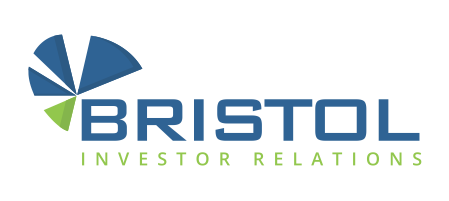The Vital Importance of Investor Feedback for Small Public Companies
The Vital Importance of Investor Feedback for Small Public Companies

Having actively managed investor relations strategies for over twenty years, the team at Bristol Capital has learned that effectively engaging with shareholders and prospective investors is crucial for the long-term success of small public companies. Investor feedback serves as an invaluable and essential resource for the management team and their board of directors, helping them shape strategic direction, improve corporate governance, and drive shareholder value.
Investor feedback provides the management team and board with insights into market trends, industry developments, and shareholder expectations. This information that Bristol Capital or similar investor relations providers gather on behalf of clients becomes vital for making informed strategic decisions that align a company’s strategy with investor interests and contribute to long-term value creation for shareholders. Feedback regarding an underperforming business segment for example, may offer information to prompt a small public company to review, strategize, divest, or restructure that segment, leading to improved financial performance.
By incorporating investor feedback into the decision-making process, board of directors can further demonstrate their commitment to strong corporate governance. This openness to feedback fosters transparency, accountability, and trust between the small public company and its investors. As a result, companies with strong corporate governance practices are more likely to attract long-term investors and maintain a positive reputation in public markets.
Obtaining investor feedback can also help the management team make better capital allocation decisions. For instance, feedback from investors may reveal information critical to decision making that can shift the company to prioritize share buybacks, paying a dividend, or debt reduction over risky investments or aggressive growth.
Investor feedback is one additional assessment tool that management and boards should use to evaluate against on a periodic basis, especially as the business evolves, and the market changes. Understanding investors’ mindsets fosters better communication with investors to reduce uncertainty and volatility.
In today’s information age, social media has become a powerful tool for sharing information and opinions about companies. By actively seeking investor feedback Bristol Capital helps our clients address concerns and assist management teams and boards mitigate the risk of negative media exposure. Open communication and responsiveness to investor concerns not only helps resolve issues, but it also demonstrates the company’s commitment to transparency and accountability. This proactive approach can lead to positive media coverage and a more favorable perception among potential investors within the social media landscape.
Public companies that fail to seek or act on investor feedback may find their strategies unaligned with current market trends and shareholder expectations, leading to poor financial performance and potentially eroding shareholder value. A company that consistently disregards investor concerns may develop a negative reputation in the market, making it more challenging to attract new investors and to retain existing ones. This reputational damage can have long-lasting effects on a company’s ability to raise capital and maintain a healthy shareholder base.
Failing to address investor feedback can sometimes lead to hostile shareholder activism, as frustrated investors may push for changes in a company’s management, strategy, or board composition. In extreme cases, this activism can result in proxy fights, public disputes, and even management or board shake-ups, causing significant disruptions to the company’s operations and tarnishing its reputation.
The importance of obtaining and utilizing investor feedback cannot be overstated for the management team and board of a small public company. By actively seeking investor insights and incorporating them into decision-making processes, companies can build trust with shareholders while utilizing a broader set of information that can improve strategic decision-making, enhance corporate governance, and ultimately drive long-term shareholder value.
